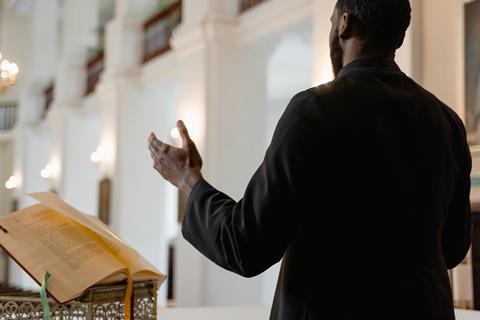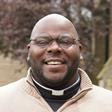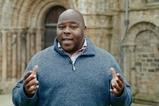When Rev Augustine Tanner-Ihm moved to rural Dorset, he found the church to be welcoming and kind. But that isn’t the experience of all Black priests, and there were racist attitudes in the wider community, he says

A few months after the Brexit referendum, I moved to rural Dorset to serve as a lay leader in a Church of England parish church. It was a time of uncertainty and shifting identities, with conversations across the country increasingly divided and charged. In the wake of Brexit, many were grappling with the implications of change and what it meant to belong.
Entering into this context as a person of colour was both an honour and a challenge, especially in a region where many had never had a person of colour as a neighbour, let alone as a spiritual leader.
The path forward will require humility, self-examination and grace
I’m reflecting on that experience in light of the recent Church of England report on institutional racism. Some have reacted with horror and been offended, and this is evidenced by headlines in the press such as ‘Rural parishioners accused of racism by archbishops’ review’ (The Telegraph) and ‘Anger as Church of England commission suggests congregations in rural parishes around Britain are racist’ (The Daily Mail).
Curious and kind
My experience in Dorset was, for the most part, defined by genuine kindness and hospitality. My congregation was incredibly welcoming, led by a thoughtful and compassionate vicar who embodied the spirit of community that the church aspires to represent. The vicar and parishioners invited me into their lives with warmth and curiosity.
For many, I was the first Black person they had ever hosted in their homes, and while this sometimes led to awkward exchanges, I was often struck by the sincerity of their welcome. Our interactions were grounded in a mutual desire to build bridges across our differences and to root our fellowship in shared faith.
However, this openness stood in contrast to my experiences with the broader community. Outside the church, I encountered a more hesitant acceptance and, at times, felt a subtle undercurrent of otherness. Dorset’s rural community, while tight-knit and well-intentioned, occasionally revealed a discomfort with difference - not born of malice but of unfamiliarity.
In these moments, I understood more fully the unique challenges that people of colour often face in rural England—where even simple interactions can be shaped by underlying biases, not through overt acts of prejudice but subtle signals of exclusion or curiosity. These moments brought into focus the complexities of life as a minority in spaces where diversity is rare.
Persistent prejudice
My experience was also markedly different from that of other friends and colleagues who have served in rural parishes. While I was fortunate to be met with open hearts, many others have experienced deeply painful instances of racism within their church communities, instances that speak to a more pervasive issue.
The Church of England’s report on institutional racism highlights a truth that cannot be ignored: prejudice persists in our communities, often in ways that affect those who come to the Church seeking faith and fellowship. For many of my peers, the obstacles have not only been relational but structural, often leaving them feeling isolated or marginalised within the very institution that should be a source of unity.
The recent report calls out rural parishes specifically, noting that these communities can sometimes reflect attitudes shaped by limited exposure to diversity. This characterisation has understandably sparked defensiveness in some, who feel it unfairly tarnishes them. I would urge a different approach: rather than seeing the report as a judgement, I hope rural parishes can view it as an invitation to reflect honestly, ask hard questions, and see how the gospel calls us to become a more welcoming and inclusive Church.
Many had never had a person of colour as a neighbour, let alone as a spiritual leader
Kindness and hospitality are core values in many rural communities, and my year in Dorset allowed me to witness these values first hand. Yet, kindness alone does not resolve the more systemic issues. True inclusivity requires the courage to face uncomfortable truths, dismantle biases and create environments where every person can feel genuinely seen and valued. This is not simply a rural problem, nor one unique to the Church; it is a challenge that runs deep within all of our institutions. But it is especially pressing for a Church that seeks to model Christ’s radical inclusivity.
Rural parishes hold a cherished place in the heart of English identity and faith. They represent a legacy of stability, tradition and community that is the backbone of the Church of England. And yet, for the Church to retain a vibrant, living faith it must also be a place of growth and change. The gospel compels us to extend our reach beyond our comfort zones, to make room for those who do not look, sound or worship as we do. And this includes acknowledging the ways that racism - conscious or unconscious - may shape our behaviours, attitudes and policies.
More change
When I look back on my time in Dorset, I am filled with gratitude for a congregation that, despite the historical and social barriers between us, chose openness and humility. Their kindness strengthened my faith in what the Church can be. But I also carry with me a commitment to advocate for change so that every person of colour - every person full stop - feels that same kindness, openness and acceptance. We have a profound opportunity to lead by example and embody the inclusive love of Christ, not just in word but in deed, too.
The path forward will require humility, self-examination and grace. It will demand more than reports and apologies; it will demand action and accountability. And, perhaps most importantly, it will demand that we truly listen to the voices of those who have felt on the margins.
The Church of England has much work to do but, with each step, we move closer to the inclusive, loving community that Christ calls us to be. My hope is that rural parishes, just as I saw in Dorset, can embrace this challenge with the same warmth, kindness and courage that they showed me.




































No comments yet